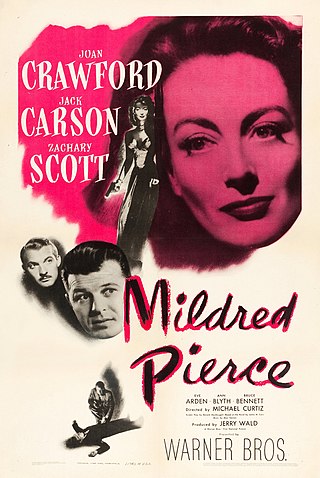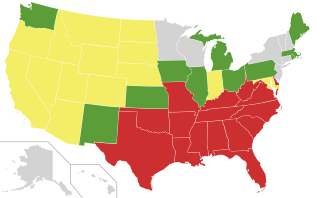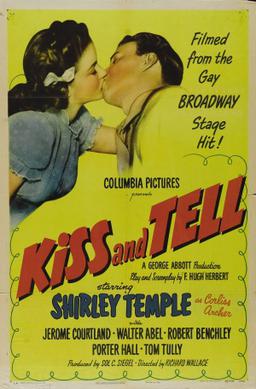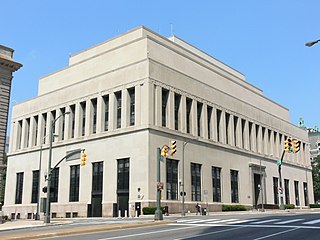Related Research Articles
Loving v. Virginia, 388 U.S. 1 (1967), was a landmark civil rights decision of the U.S. Supreme Court in which the Court ruled that laws banning interracial marriage violate the Equal Protection and Due Process Clauses of the Fourteenth Amendment to the U.S. Constitution. The case involved Mildred Loving, a woman of color, and her white husband Richard Loving, who in 1958 were sentenced to a year in prison for marrying each other. Their marriage violated Virginia's Racial Integrity Act of 1924, which criminalized marriage between people classified as "white" and people classified as "colored". The Lovings appealed their conviction to the Supreme Court of Virginia, which upheld it. They then appealed to the U.S. Supreme Court, which agreed to hear their case.

Hak Ja Han is a Korean religious leader. Her late husband Sun Myung Moon was the founder of the Unification movement, also known as the Unification Church (UC). Han and Moon were married in April 1960 and have 10 living children and over 30 grandchildren. In 1992, she established the Women's Federation for World Peace, and traveled the world speaking on its behalf. She is the leader of the Family Federation for World Peace and Unification, in which she is called "True Mother" and "Mother of Peace".

Lela Rochon Fuqua is an American actress. She is best known for her starring role as Robin Stokes in the 1995 romantic drama film Waiting to Exhale. Rochon also had roles in the films Harlem Nights (1989), Boomerang (1992), The Chamber (1996), Gang Related (1997), Knock Off (1998), Why Do Fools Fall in Love (1998), and Any Given Sunday (1999).

Mildred Pierce is a 1945 American melodrama/film noir directed by Michael Curtiz and starring Joan Crawford, Jack Carson, and Zachary Scott, also featuring Eve Arden, Ann Blyth, and Bruce Bennett. Based on the 1941 novel by James M. Cain, this was Crawford's first starring role for Warner Bros., after leaving Metro-Goldwyn-Mayer, and she won the Academy Award for Best Actress.
Loving Day is an annual national celebration held on June 12, the anniversary of the 1967 United States Supreme Court decision Loving v. Virginia which struck down all anti-miscegenation laws remaining in sixteen U.S. states. In the United States, anti-miscegenation laws were U.S. state laws banning interracial marriage, mainly forbidding marriage between two different races, until the Warren Court ruled unanimously in 1967 that these state laws were unconstitutional. Chief Justice Earl Warren wrote in the court majority opinion that "the freedom to marry, or not marry, a person of another race resides with the individual, and cannot be infringed by the State."

Harry Lee Carrico was a member, Chief Justice, and Senior Justice of the Supreme Court of Virginia. His tenure as an active Justice of the Court, at more than 42 years, was the longest of any justice excluding William Fleming, who served nearly 44 years, from 1780-1824. Because current law requires active judges and Justices in Virginia to retire or take senior status on or shortly after their seventieth birthdays, Justice Carrico's longevity record likely will not be challenged.

Mildred Delores Loving and her husband Richard Perry Loving were an American married couple who were the plaintiffs in the landmark U.S. Supreme Court case Loving v. Virginia (1967). Their marriage has been the subject of three movies, including the 2016 drama Loving, and several songs. The Lovings were criminally charged with interracial marriage under a Virginia statute banning such marriages, and were forced to leave the state to avoid being jailed. They moved to Washington, D.C., but wanted to return to their home town. With the help of the American Civil Liberties Union (ACLU), they filed suit to overturn the law. In 1967, the Supreme Court ruled in their favor, striking down the Virginia statute and all state anti-miscegenation laws as unconstitutional, for violating due process and equal protection of the law under the Fourteenth Amendment. On June 29, 1975, a drunk driver struck the Lovings' car in Caroline County, Virginia. Richard was killed in the crash, at the age of 41. Mildred lost her right eye.

The Respect for Marriage Act is a landmark United States federal law passed by the 117th United States Congress and signed into law by President Joe Biden. It repeals the Defense of Marriage Act (DOMA), requires the U.S. federal government and all U.S. states and territories to recognize the validity of same-sex and interracial civil marriages in the United States, and protects religious liberty. Its first version in 2009 was supported by former Republican U.S. Representative Bob Barr, the original sponsor of DOMA, and former President Bill Clinton, who signed DOMA in 1996. Iterations of the proposal were put forth in the 111th, 112th, 113th, 114th, and 117th Congresses.
Bernard S. Cohen was a civil liberties attorney and Democratic member of the Virginia House of Delegates. On April 10, 1967, appearing with co-counsel Philip Hirschkop on behalf of the ACLU, Cohen presented oral argument for the petitioners in Loving v. Virginia before the U. S. Supreme Court. On June 12, 1967, the Supreme Court ruled in favor of Cohen's clients, declaring bans on interracial marriage unconstitutional, thus invalidating the anti-miscegenation laws of 15 states.
Anti-miscegenation laws or miscegenation laws are laws that enforce racial segregation at the level of marriage and intimate relationships by criminalizing interracial marriage and sometimes also sex between members of different races.

Central Point is an unincorporated community in Caroline County, in the U.S. state of Virginia.

In the United States, anti-miscegenation laws were passed by most states to prohibit interracial marriage, and in some cases also prohibit interracial sexual relations. Some such laws predate the establishment of the United States, some dating to the later 17th or early 18th century, a century or more after the complete racialization of slavery. Nine states never enacted such laws; 25 states had repealed their laws by 1967, when the United States Supreme Court ruled in Loving v. Virginia that such laws were unconstitutional in the remaining 16 states. The term miscegenation was first used in 1863, during the American Civil War, by journalists to discredit the abolitionist movement by stirring up debate over the prospect of interracial marriage after the abolition of slavery.

The Loving Kind is the 19th album by singer-songwriter Nanci Griffith. It was released June 9, 2009 as her last album for Rounder Records, a label for whom Griffith worked since 2002. Comprising thirteen songs, it was her first release of all new material since 2005. The album tackles political topics such as Loving vs. Virginia and capital punishment, as well as songs about Griffith's heroes, such as Townes Van Zandt. BBC Music gave the album a generally positive review, stating that "It does sound like her muse is finally on the mend."

Kiss and Tell is a 1945 American comedy film starring then 17-year-old Shirley Temple as Corliss Archer. In the film, two teenage girls cause their respective parents much concern when they start to become interested in boys. The parents' bickering about which girl is the worse influence causes more problems than it solves.

The Patrick Henry Building is a historic building located in Richmond, Virginia. Formerly designated simply as the Old State Library or the Virginia State Library and Archives and Virginia Supreme Court, it was renovated, then rededicated and renamed for the Founding Father and former Virginia Governor Patrick Henry on June 13, 2005.

Loving is a 2016 American biographical romantic drama film which tells the story of Richard and Mildred Loving, the plaintiffs in the 1967 U.S. Supreme Court decision Loving v. Virginia, which invalidated state laws prohibiting interracial marriage. The film was produced by Big Beach and Raindog Films, and distributed by Focus Features. The film takes inspiration from The Loving Story (2011) by Nancy Buirski, a documentary which follows the Lovings and their landmark case.
Susan R. Rose is a Tony award winning theatrical and film producer. She co-produced the musical The Last Five Years. She is a producer of THE BAND'S VISIT, winner of 10 Tony Awards including the Tony for Best Musical 2018.

Philip Jay Hirschkop is an American civil rights lawyer. With fellow American Civil Liberties Union (ACLU) volunteer cooperating attorney Bernard S. Cohen, the two represented Mildred and Richard Loving in several court cases to overturn the Lovings' conviction for interracial marriage in the state of Virginia. The case eventually reached the United States Supreme Court, and on April 10, 1967, Hirschkop and Cohen were permitted to share the oral argument for the Lovings. In a landmark decision, the Supreme Court ruled unanimously in favor of the Lovings in Loving v. Virginia, overturning their conviction and ending the enforcement of state bans on interracial marriage.
Hope Elaine Ryden was an American documentary producer and wildlife activist. She contributed to various publications including National Geographic, Audubon, Smithsonian, Defenders and The New York Times. She specialized in photographing animals such as beavers and coyotes across North America.
William M. Marutani was the first Asian-American male judge in Pennsylvania (1975). Marutani was the only Japanese American commissioner to sit on the Commission on Wartime Relocation and Internment of Civilians (CWRIC).
References
- ↑ Brennan, Patricia (March 31, 1996). "Mr. and Mrs. Loving". Washington Post. Retrieved July 1, 2017.
- ↑ D. Horowitz, Lisa (March 28, 1996). "Review: 'Mr. and Mrs. Loving'". Variety. Retrieved July 1, 2017.
- ↑ D. Pierce, Scott (March 30, 1996). "Mr. and Mrs. loving Is Shocking But True". Deseret News. Retrieved July 1, 2017.
- ↑ "CableACE Awards (1996)". IMDb. Retrieved 2018-12-01.
- ↑ Dionne Walker (June 10, 2007). "Pioneer of interracial marriage looks back". USAToday.com. Retrieved May 8, 2008.
- ↑ "40 years of interracial marriage: Mildred Loving reflects on breaking the color barrier". International Herald Tribune . Associated Press. June 9, 2007. Retrieved April 28, 2008.